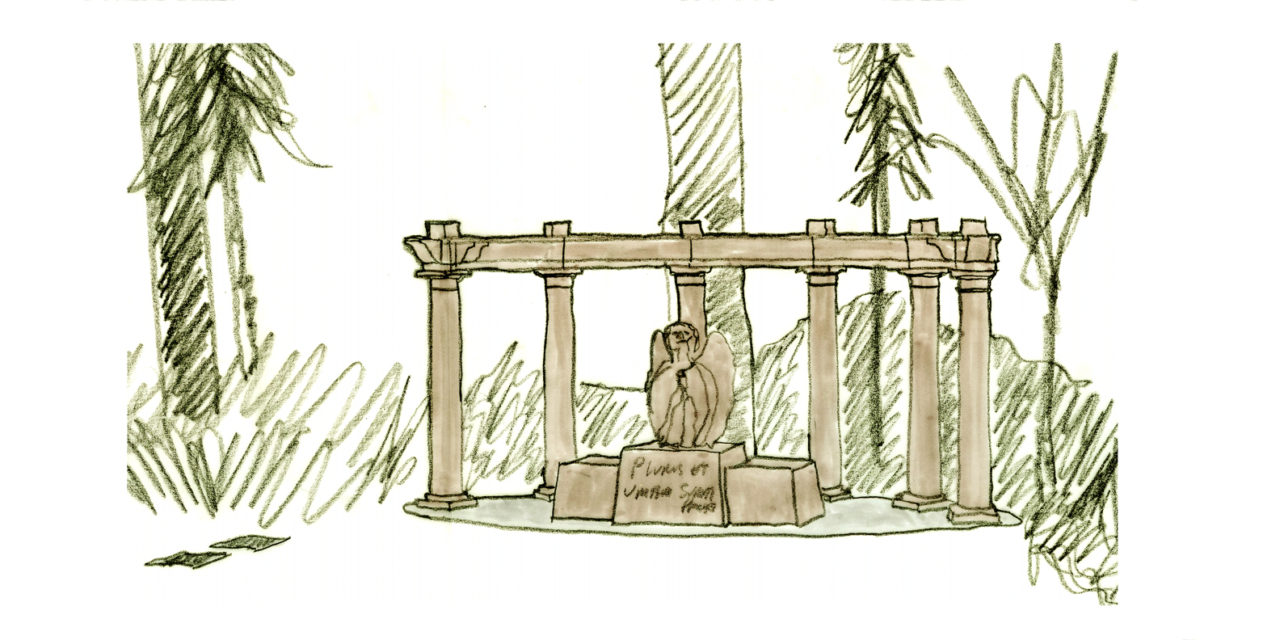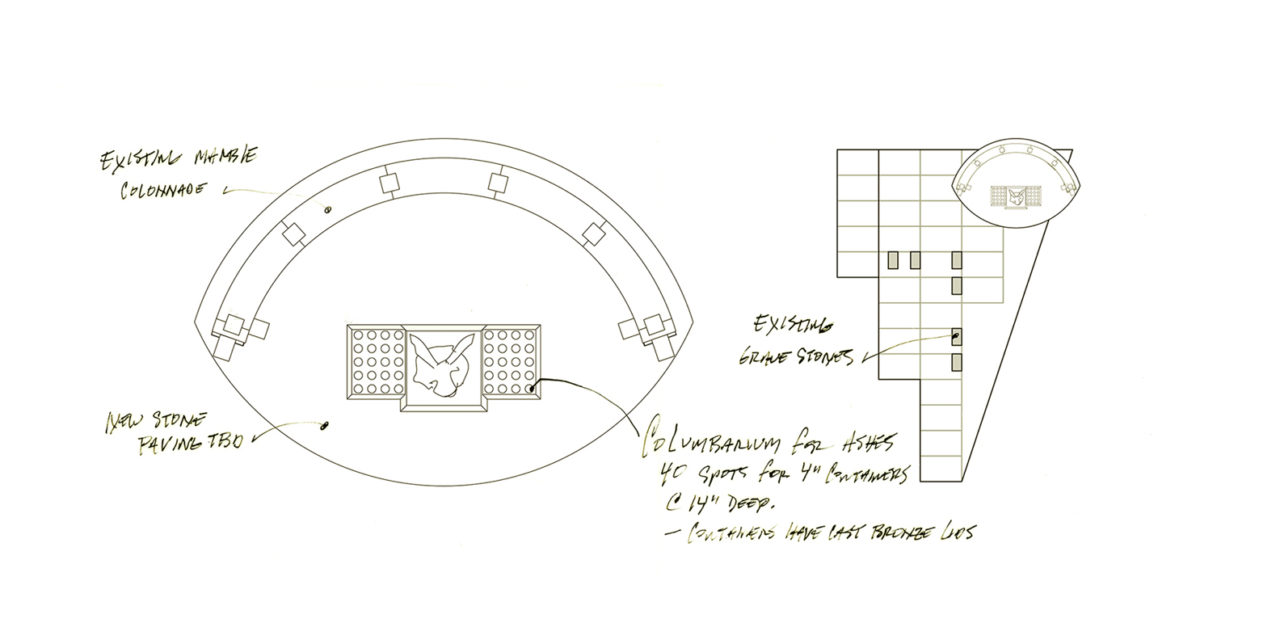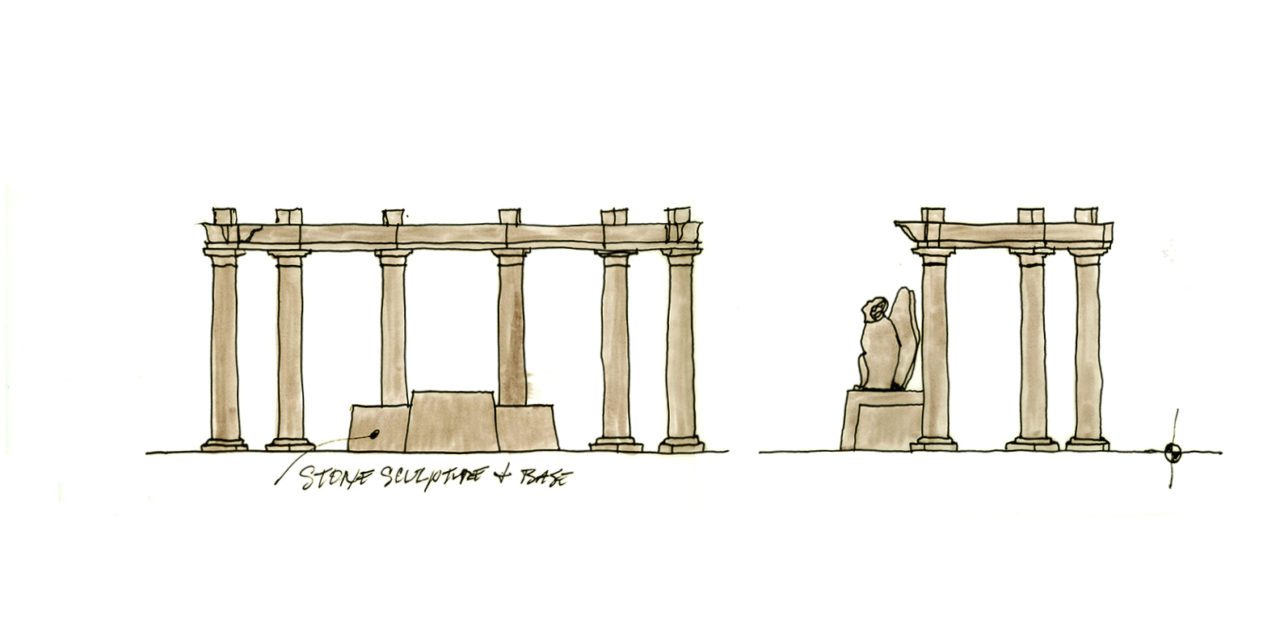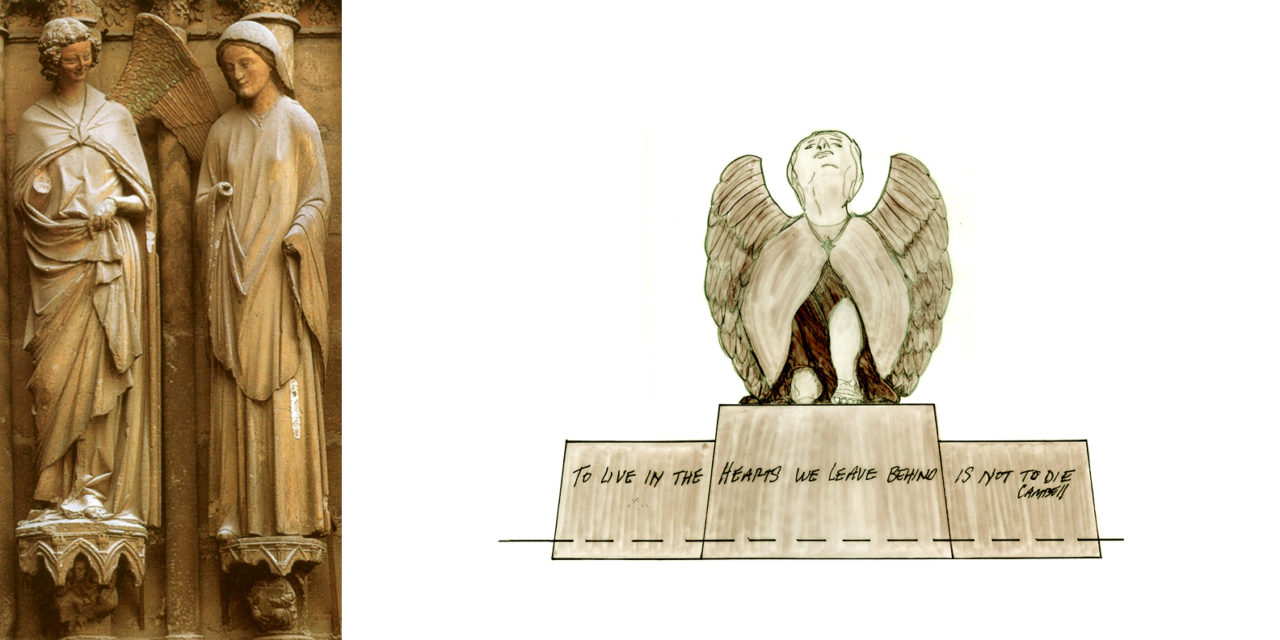Crouching Angel
This columbarium has been proposed for a prominent family with four generations in the relatively young city of Spokane. The sculpture adds a columbarium to the existing 19th century colonnade of white marble. It rests on a stone plinth flanked by two battered stone shoulders that are designed at seating height. These shoulders form the columbarium for the internment up to 40 bronze canisters containing the ashes of family members.
The angel is a modern interpretation of Rhodes’s favorite medieval carving of a 13th century angel from the West Portal of Rheims Cathedral. This sculpture, known among sculptors as the “smiling angel”, has delicate features that share a more than passing resemblance to the family commissioning the work. This particular medieval carving marked a profound return to the humanist values we associate with the high period of Greek sculpture; the angel is at rest in her body and smiling benevolently rather than presenting the stiff mask found in the more typical mannered representation of the time.
The plinth base will likely be carved with one of two quotes. The first, “To live in the hearts we leave behind is not to die” by the contemporary author, Thomas Campbell. The second option, by Horace, is in Latin. “Plurus et umbra sumas” translates as, “We are but dust and shadow.” Whichever quote is ultimately chosen, it is to be hand-carved in V-cut lettering.





